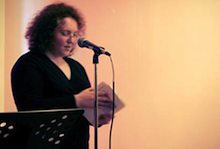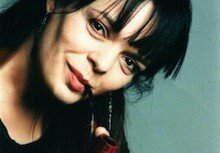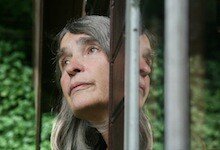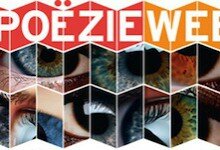Excavating the archive
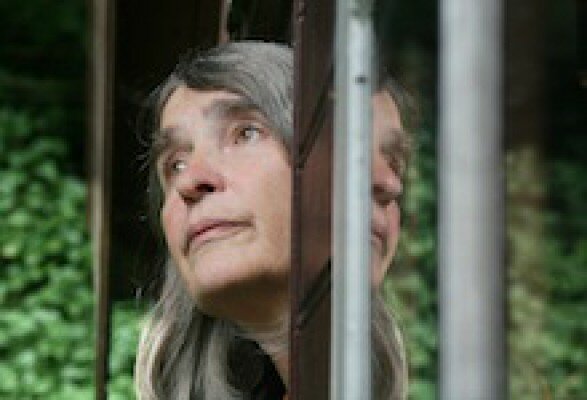
The incantation or singsong of our mentally retarded child has always fascinated me. Long before she was able to communicate with speech, I had the impression that she could recall an ancient world through her incantations.
The theme ‘Incantation’ (‘Bezwering’ in Dutch) is the inspiration for my search to find kindred poems in Poetry International’s archive. Between the five poems included here, there seems to be a connection between acquiring poetic expression through the singsong or incantation of the so-called mentally disabled. But also, alter egos can be used ‘to take hold of an incantation’.
The first two poets, Charles Mungoshi and Ed Leeflang, shape the deviant (speech) behaviour of a closely related person into poetry. The three other poets change, with the help of alter egos, unfamiliar language into poetry: Barbara Köhler poses as the unknown woman (‘die Fremde’ in German), Dannie Abse as the ventriloquist bird, and Ryuichi Tamura as, perhaps, his traumatised mother.
1. ‘Dotito is our brother’, Charles Mungoshi (Zimbabwe)
As my family lived for several years in Africa, I wanted to include an African poet writing on this theme.
Mungoshi's poem begins: ‘Dotito is our brother/He is strange.’ This is a rather heartbreaking poem about a boy, not because he is talking to the rain, but because of how people start to point at his family. Then, between the two last strophes there is the alarming line: ‘We are a little afraid.’ Through his otherness, the boy endangers his own family due to the superstitions and misunderstandings of his community.
2. ‘On behalf of the simple one’, Ed Leeflang (The Netherlands)
As I know the author personally, we once discussed writing about our mentally retarded daughters. Initially he couldn’t and turned down the idea; nevertheless after some years he wrote: ‘because I love her, she may enter my poetry.’
Leeflang played the cister, a string instrument, to create togetherness during the hours when he visited his daughter, and in this poem, the floor is hers:
‘and understand/why I repeat myself’.
3. ‘As it turns out’, Barbara Köhler (Germany)
In the turmoil of looking for unfamiliar words and meanings with the help of the ‘unknown woman’ (die Fremde), the speaker ‘take[s] hold of an incantation’. And in the end this unknown woman hands to the poet: ‘the stillness, space, composed’.
4. ‘Talking to myself’, Dannie Abse (United Kingdom)
‘Courage, the ventriloquist bird cries/(a little god he is, censor of language)’.
The poet needs his strange companion to carry on with his poetry. ‘Now Time wastes me and there’s hardly time/to fuss for more vascular speech.’ And the bird and the poet are intertwined as the parrot in the last strophe: ‘Quick quick/speak old parrot,/do I not feed you with my life?’
5. ‘Nu’, Ryuichi Tamura (Japan)
In Tamura’s verse, ‘Nu’ is a woman – perhaps the speaker’s mother – who is traumatised and driven into madness. Through her the poet overcomes his own traumatic events: ‘cries out from the window/my ears do not hear her voice/my eyes listen to her voice’.
It is striking that the word ‘rain’ is used in four of the five poems I’ve selected (the exception being Köhler’s), perhaps as a metaphor for a veil that has to be undone. In all of the poems, the quest for a deep layer in an invisible world is visualised and comes to surface as poetry.
Emma Crebolder (1942) was born in Zeelandic Flanders, The Netherlands. Her most recent volume of poetry Verzoenen (2014) is part of a trilogy from Nieuw Amsterdam Press, also including Vergeten (2010) and Vallen (2012). She has studied German and African languages, and more of her writing and biography can be found on her website.


